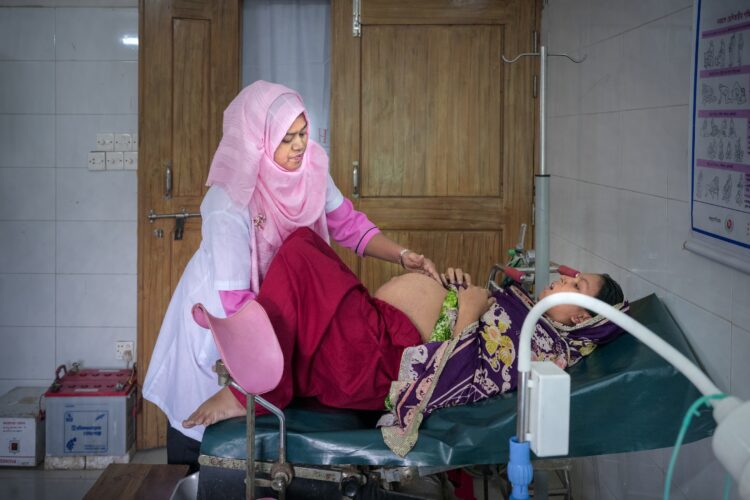Definition of Midwifery

Midwifery is the profession of midwives (1); only midwives practise midwifery. Midwifery has a unique body of knowledge, skills and professional attitudes drawn from disciplines shared by other health professions such as health sciences and sociology but practised by midwives, and based upon principles of autonomy, partnership, ethics and accountability. The Professional Framework for Midwifery defines the different aspects of the profession.
Midwifery is an approach to care for women, gender diverse people and newborns whereby midwives:
- Provide education on sexual and reproductive health, contraception and family planning, administer contraceptives (within scope of practice) and provide comprehensive care,
- Optimise the normal biological, psychological, social and cultural processes of pregnancy, childbirth, the postnatal and newborn period,
- Work in partnership with women, respecting the individual circumstances and views of each woman,
- Promote women’s personal capabilities to care for themselves and their families,
- Collaborate with midwives and other health professionals as necessary to provide holistic care that meets every woman’s individual needs.
Midwifery care is provided by an autonomous midwife who is enabled to work to full scope of practice based on the ICM International Definition and Scope of Practice of a Midwife and ICM Essential Competencies for Midwifery Practice. Midwifery competencies (knowledge, skills and attitudes) are held and practised by midwives, educated through a pre-service/pre-registration midwifery education programme that meets the ICM’s Global Standards for Midwifery Education (2).
In some countries where the title ‘midwife’ is not yet protected, other health professionals (especially nurses, doctors and midwifery associates (this can include community health workers and maternity support workers)) may be involved in providing care for sexual, reproductive, maternal, newborn and adolescent health (SRMNAH) across the life course. As these health professionals are not midwives, they do not possess the full set of competencies of a midwife and do not provide midwifery care, but rather aspects of SRMNAH care.
References
- International Confederation of Midwives. 2024. International Definition and Scope of Practice of the Midwife. Available at: https://internationalmidwives.org/resources/international-definition-of-the-midwife/
- International Confederation of Midwives. 2021. Global Standards for Midwifery Education. Available at: https://internationalmidwives.org/resources/global-standards-for-midwifery-education/
Adopted at Toronto Council meeting, 2017
Reviewed and adopted at virtual council meeting, 2025
Due for next review, 2030
© 2025 by the International Confederation of Midwives
Detailed copyright information can be found here.
Suggested Citation: Definition of Midwifery. The Hague: International Confederation of Midwives 2025.